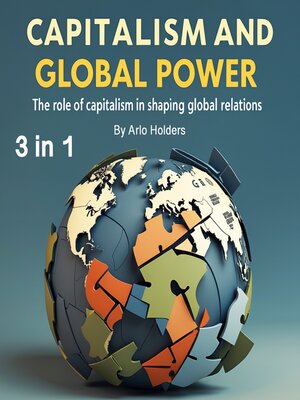Capitalism and Global Power
audiobook (Unabridged) ∣ The Role of Capitalism in Shaping Global Relations (3 in 1)
By Arlo Holders

Sign up to save your library
With an OverDrive account, you can save your favorite libraries for at-a-glance information about availability. Find out more about OverDrive accounts.
Find this title in Libby, the library reading app by OverDrive.



Search for a digital library with this title
Title found at these libraries:
| Library Name | Distance |
|---|---|
| Loading... |
This book contains these three titles:
- Capitalism and Inequality: Capitalism, as an economic system, is based on private ownership of the means of production and the creation of goods or services for profit. In capitalist societies, market forces—supply and demand—determine the distribution of resources and wealth. This system is characterized by competition, limited government intervention, and the pursuit of profit. Over time, capitalism has evolved in response to global events, technological advancements, and changes in social and political structures. However, a fundamental aspect of capitalism that persists is the inherent inequality it creates.
- Economic Impacts of Imperialism: Imperialism, as a driving force in global history, established the foundation for much of the modern world's economic and political systems. The roots of imperialism stretch back to ancient civilizations, where conquest and control of territories provided the resources and labor necessary for expansion and prosperity. Over time, the concept evolved, shaped by cultural ambitions, geopolitical competition, and economic incentives. By the late 15th century, the age of exploration began a new phase of empire building, marked by the European powers seeking wealth and influence beyond their borders.
- Global Capitalism: The roots of global capitalism can be traced to the rise of industrial capitalism in the 18th and 19th centuries, which laid the foundation for an interconnected global economy. With the expansion of imperialism, the development of transportation technologies like steamships and railways, and the establishment of international financial institutions, economic activity increasingly transcended national boundaries.







